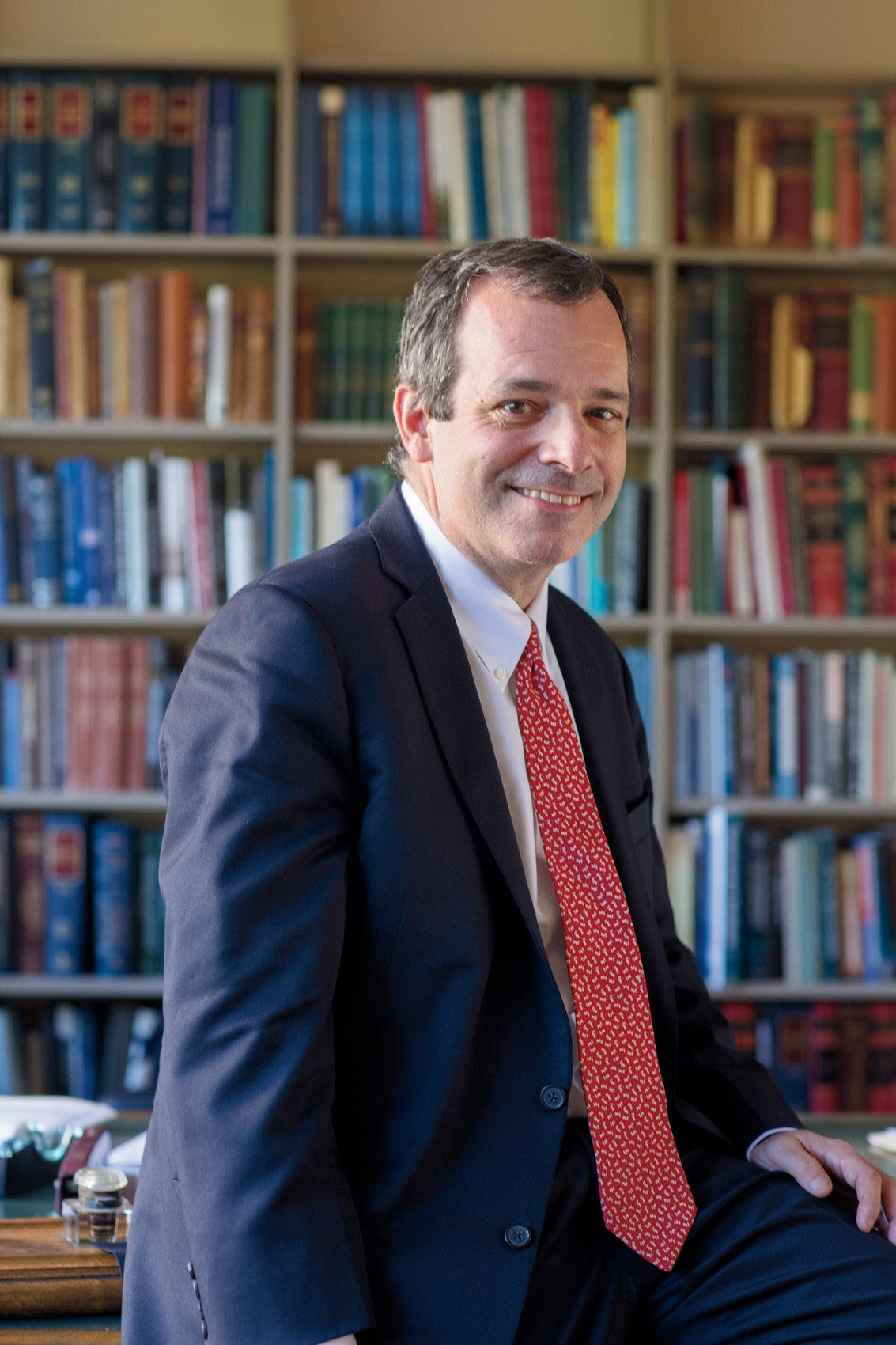Training lawyers and leaders for the 21st century
Harvard Law School has always been at the forefront of curricular and pedagogical innovation. More than a century ago, HLS pioneered the case method and the Socratic law school classroom. In 1913, the Harvard Legal Aid Bureau became the first student organization providing legal services to those in need—an innovation that was to become the model for clinical education. And, in the early 2000s, then-Dean Elena Kagan ’86 and future-Dean Martha Minow led an effort that modernized our curriculum with innovative new legislation and regulation and international and comparative requirements.
In a rapidly changing legal profession and world, Harvard Law School—and any great law school—must always stand ready to examine and reexamine its curriculum and pedagogy to ensure that we are preparing the great lawyers and leaders the world needs. It is of course nonnegotiable that our classes teach our students to think like lawyers—to understand the deep logical structure of complex problems, to be able to take those problems apart and put them back together, to differentiate the relevant from the extraneous, and to question the assumptions that others take for granted.
We must also continue to explore new things to teach and new ways of teaching. And that change must be fact-based. To that end, over the past two years, we have held focus groups with practitioners in law firms, public interest firms, and government agencies. We’ve polled our students and our graduates about their aspirations, about what they’ve found useful, and about what else they think law students today should be learning. We’ve used student focus groups to beta-test new material and used analytics to evaluate the success of the work we’ve done.
As I mentioned in my end-of-year message, we’ve recently introduced a series of new initiatives informed by these efforts. In this issue of the Harvard Law Bulletin we report on two of these innovations.
Last summer, we began a new online pre-matriculation course called Zero-L. It grew out of the simple but powerful notion that all students should start law school with a common baseline of knowledge, so none of them have to feel as if everyone else “gets it” but they don’t (a feeling I and many others experienced as 1Ls). As you will read in our feature, Zero-L gives incoming students a firm foundation in the key features of the U.S. legal system and the vocabulary of law school before they arrive on campus. It also gives them a sense of what to expect in the classroom, including the Socratic method. Many Harvard Law faculty have lent their talent and expertise to create the series of lively videos that make up the course.
This issue of the Bulletin also includes a story on our new 1L January Experiential Term, or JET. JET gives students nine courses to choose from. These intensive, hands-on offerings use case studies and simulations to give our 1Ls, early in their time at Harvard Law School, opportunities to engage in skills training, teamwork, and self-reflection about the law and about the lawyers they want to become. Both faculty and students have rated JET and its individual classes highly.
As we look to the next academic year, I want to tell you about another addition to the Harvard Law School curriculum. We are launching a 1L Constitutional Law class that addresses separation of powers, federalism, and the 14th Amendment. Together, this class and the 1L Legislation and Regulation course will give our students a 360-degree view of the U.S. system of government and U.S. public law that will prepare them to dive into upper-level public-law courses and clinics.
I hope you enjoy reading about these curricular initiatives as well as some of the latest faculty scholarship, and also our terrific alumni profiles, and the many other stories and updates in this issue. I look forward to bringing you more news of our efforts, and I wish you a productive and happy summer!
